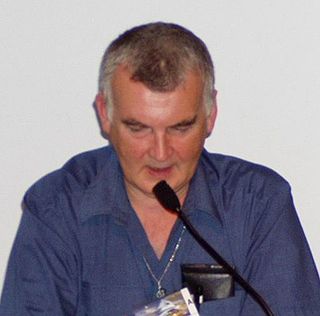
Kenneth Macrae MacLeod is a Scottish science fiction writer. His novels The Sky Road and The Night Sessions won the BSFA Award. MacLeod's novels have been nominated for the Arthur C. Clarke, Hugo, Nebula, Locus, and Campbell Memorial awards for best novel on multiple occasions. A techno-utopianist, MacLeod's work makes frequent use of libertarian socialist themes; he is a three-time winner of the libertarian Prometheus Award. Prior to becoming a novelist, MacLeod studied biology and worked as a computer programmer. He sits on the advisory board of the Edinburgh Science Festival. MacLeod has been chosen as a Guest of Honor at the 82nd Worldcon, Glasgow 2024

Icehenge is a science fiction novel by American author Kim Stanley Robinson, published in 1984.
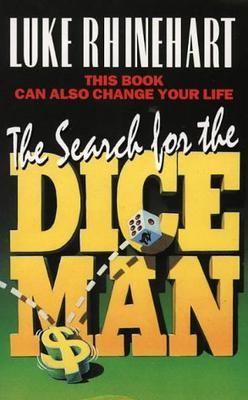
The Search for the Dice Man was written by George Cockcroft under the pen name Luke Rhinehart. It is the official sequel to The Dice Man, and was published in 1993.
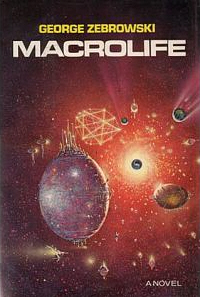
Macrolife: A Mobile Utopia is a 1979 science fiction novel by American author George Zebrowski.
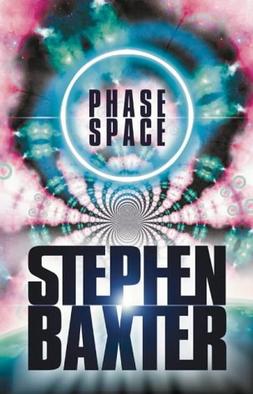
Phase Space is a 2003 science fiction collection by British writer Stephen Baxter, containing twenty-three thematically linked stories, in which the human relationship with the universe is explored: whether humanity is truly alone in the universe, if there are other intelligent species, if these have turned their backs on us, or if expansion itself is destined to fail.

The Road to Gandolfo is a story by Michael Shepherd about General MacKenzie Hawkins, a military legend and Army veteran. He defaces an important Chinese memorial as a result of being drugged by a Chinese general and is later kicked out of the Army. Seeking revenge, he plots to kidnap the Pope Francis I and hold him for ransom of $400 million, one dollar for every Catholic in the world.

Priestess of Avalon is a 2000 novel by American writer Marion Zimmer Bradley, completed posthumously by Diana L. Paxson. It follows detailing the life of Helena, first wife of Western Roman Emperor Constantius Chlorus and mother of Constantine.

Homeward Bound (2004) is a science fiction and alternate history novel by Harry Turtledove. It is the eighth and final work in his Worldwar series fictional universe. It follows the events of the Colonization trilogy and gives some closure to the storylines.

A Dyson tree is a hypothetical genetically engineered plant capable of growing inside a comet, suggested by the physicist Freeman Dyson. Plants may be able to produce a breathable atmosphere within the hollow spaces of the comet, utilising solar energy for photosynthesis and cometary materials for nutrients, thus providing self-sustaining habitats for humanity in the outer solar system analogous to a greenhouse in space, a shell grown by a mollusc or the actions of thermogenic plants, such as the skunk cabbage or the voodoo lily.

Manifold: Origin (2001) is a science fiction novel by British author Stephen Baxter, the third instalment in the Manifold Trilogy. As with the other books, the protagonist Reid Malenfant is put through a scenario dealing with the Fermi paradox. Each novel is an alternative scenario rather than a chronological sequel, and does not occur in the same universe. Manifold: Origin explores primate evolution to create an explanation for our lack of contact with other intelligent species.

Manifold: Space is a science fiction book by British author Stephen Baxter, first published in the United Kingdom in 2000, then released in the United States in 2001. It is the second book of the Manifold series and examines another possible solution to the Fermi paradox. Although it is in no sense a sequel to the first book it contains a number of the same characters, notably protagonist Reid Malenfant, and similar artefacts. The Manifold series contains four books, Manifold: Time, Manifold: Space, Manifold: Origin, and Phase Space.
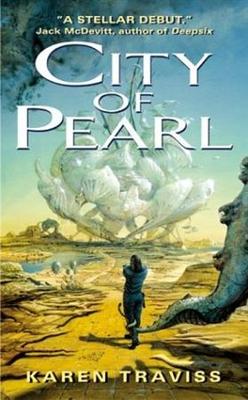
City of Pearl is a science fiction novel by British writer Karen Traviss. Published in March 2004, it is the first book of the Wess'Har Series. Among the main characters are Shan Frankland, the hardened cop and forceful commander; Josh Garrod, the devout Christian and gentle leader; Aras, the lonely Wess'har, outcast by his horrible disease; and Lindsay Neville, the Marines Commander dealing with an unplanned pregnancy. City of Pearl is a book that deals with morals, especially concerning environmentalism, and keeps action sequences to a minimum.

The Aquitaine Progression is a novel by Robert Ludlum originally published in 1984.

Sharpe's Tiger is the fifteenth historical novel in the Richard Sharpe series by Bernard Cornwell and was first published in 1997. It acts as a prequel to the "original" Sharpe series, which begins in 1809, while Sharpe is a captain in the Peninsular War during the Talavera Campaign in Spain. In Tiger, Sharpe is a private in the 33rd Regiment of Foot, serving in southern India during the Siege of Seringapatam in 1799.
The Manifold Trilogy is a series of science fiction books by British author Stephen Baxter. The series was published from 1999 to 2003. It consists of three novels and an anthology of short stories relating to the three. The three novels in the trilogy are not ordered chronologically; instead, they are thematically linked novels that take place in alternate universes.

The Matlock Paper is the third suspense novel by Robert Ludlum, in which a solitary protagonist comes face to face with a massive criminal conspiracy.
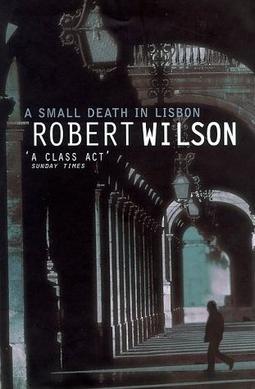
A Small Death in Lisbon is a crime novel by Robert Wilson. The novel won the CWA Gold Dagger Award in 1999, and the German Crime Prize in 2003.

Renegade's Magic is a book by Robin Hobb, the third in her Soldier Son Trilogy. The book follows Nevare, protagonist from the previous two novels, Forest Mage and Shaman's Crossing. Forced to hang for his alleged nefarious crimes, Nevare finally embraces the magic within himself and escapes. The battle between his Gernian and Speck identities is a central feature of the novel, highlighting themes such as loss of identity, and the impact of colonialism on native populations.
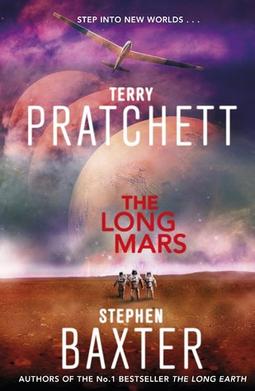
The Long Mars is a science fiction novel by Terry Pratchett and Stephen Baxter.

Star Gate is a science fantasy novel by American writer Andre Norton, published by Harcourt, Brace & Company in 1958. The story is science fiction with a blend of sword and sorcery, mingling technologically advanced humans from Earth with the human natives of the far-off world of Gorth and a native culture that has achieved the development level of medieval Europe.



















